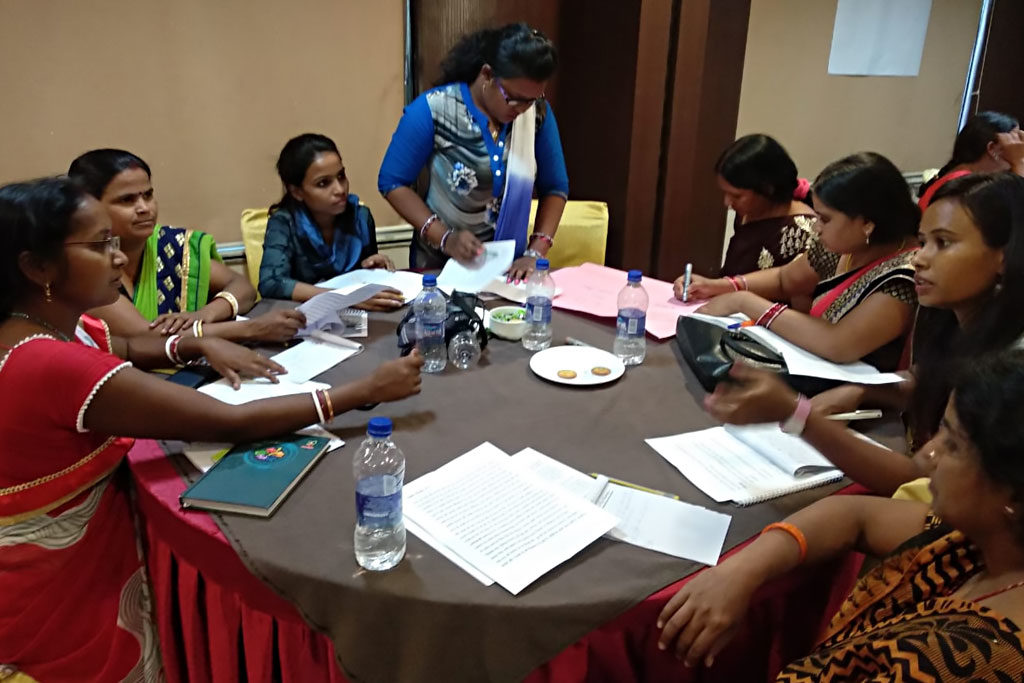
On 28 March, 2019, several organizations based in Jharkhand had come together for a consultation to explore collective ways of strengthening the response of the health system towards gender based violence, to broadly map the ongoing initiatives, and to identify areas that needed strengthening.
As a follow-up to this initiative, Sama organised and facilitated one daya workshop on 1 June 2019 in Ranchi with community based organizations working on the issues of gender based violence and health in Jharkhand, where some of the organizations work with tribal and dalit communities. The participants were mostly women activists from both urban and rural region of Jharkhand working with survivors of violence.
One of the primary objectives of this workshop was to facilitate the process of capacity building among the groups to be able to locate gender based violence from the public health view point, and to introduce them to the guidelines and protocols issued by the Ministry of Health and Family Welfare (MoHFW) for medico-legal care of the survivors of sexual violence.
During the workshop, the participants in groups discussed the words they connected with ‘violence’. They came up with issues of discrimination, reproductive health rights, sexual, physical and psychological violence, practice of witch hunting, violence with matrimonial relationships, patriarchy, assertion of power, and many more. However, this activity helped them to think not just about violence per se, but also the other intersecting concerns. This process helped to build a context for the workshop.
Certain case studies, which highlighted the complexities of health within the domain of gender based violence, were used to facilitate a discussion on questions related to gender based violence as a public health issue, role of public institutions, discrimination and biases, marital rape, consent within the law and the public health system, process of medical examination, evidence collection, opinion formation by the healthcare providers, etc.
The participants were open and receptive to discussions that touched upon issues of relationships, homosexuality, mental health, sex work, whether or not alcohol is the cause of violence etc. The biases of the healthcare system and its apathy to support survivors of gender based violence were also brought out during the discussions.
One of the other sessions focussed on the MoHFW guidelines that addressed the issues of therapeutic care for the survivors, consent and refusal within the health system, purpose of incident history, and the inability of the health system to address sexual violence beyond genitals. Further, the processes involved in medical examination and collection of evidence that is admissible by the courts of law were also discussed to provide a broad understanding of some of the crucial tools available to the survivors to seek justice.
At the end of the workshop, a road map was sketched with the help of the participants to develop strategies that could be adopted to build capacity, involve more groups and community based organizations to take the issue of GBV forward, and advocacy towards implementation of the policies that are already in place. The participants planned to visit public hospitals in their respective district to assess response and care received by survivors of gender based violence. A follow up meeting/ workshop is to be organized again with the organizations in Jharkhand to discuss history and best practices on work done on gender based violence, detailed guidelines, legal remedies etc. Other than this, it was decided to draft a recommendation letter for the Health Secretary, Jharkhand to pursue for implementation of the guidelines and protocol.




